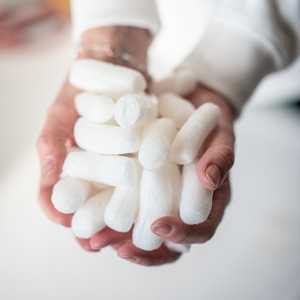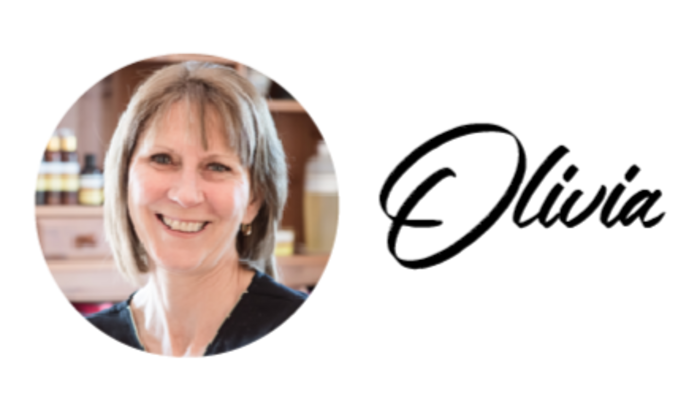The Challenges of a Small Business Trying to be Eco Friendly
While trying to maintain human beauty, the beauty industry often doesn't do the same for the earth. An eye-watering amount of cosmetics packaging is generated globally every year, most of which ends up in landfill or our oceans.
As a relatively small manufacturer of beauty products, it would be easy for me to think that any effort I make to reduce this waste would be, excuse the pun, a drop in the ocean. Be that as it may, but I still feel a huge responsibility to conduct my business in as eco-friendly way as possible.
"Oleo is a lot more than the products we sell, it's about our values and the causes we support."
Consumers are increasingly interested (and rightly so) in purchasing from brands that care about their impacts on the earth, but as an eco-conscious manufacturer, I face many challenges, including higher costs and a dearth of available materials.
I have been making my Oleo products since 2008. Obviously, I know exactly what goes into them and with complete transparency, I can say that they contain no harsh chemicals, harmful ingredients or toxins and are 100% vegan. I confidentially know that I've ticked all of the eco-friendly boxes in respect of the ingredients of my aromatherapy infused, natural range.

However, am I entirely guilt-free when it comes to packaging? When asked, can I put my hand up and say I am doing everything in my power to use recyclable, environmentally friendly packaging. The honest answer is "no".
Packaging for me has always been and still is a nightmare. As a small company with a tight budget, I am confronted with several barriers to 'greening' my products. I have spent countless hours researching materials and just when I think I've found the perfect container, a newer and better alternative comes along. Becoming a sustainable brand is a work in progress.
"Sustainability doesn't come cheap."
Suppliers of eco-friendly packaging have larger minimum order quantities, which can mean purchasing at least 10,000 units. This equates to a huge amount of money tied up in a huge amount of packaging that, apart from anything else, I simply do not have the room to store. I do not have a lot of wiggle room in my margins, so picking between a non-recyclable bottle for 25p and a recyclable one for 95p is a big difference. Are my customers going to bear the quite substantial added expense of being sustainable?
Never one to be deterred, my eco-packaging research continued. I asked the opinions of many of my customers. The eco-friendly credentials of glass are hard to ignore. It is unique in that it can be infinitely recycled without any deterioration in its properties. Consequently, glass is a popular choice with my customers, but it does have drawbacks. When asked, from a safety perspective, hardly anyone was keen to have glass bottles in the shower (shower gel, shampoo, conditioner etc).
So, what have I come up with, you might ask. Well, some changes have already been implemented:
- Lavender & Ylang Ylang Sugar Scrubs are now packaged in Biofilm, which is made from potato starch and is completely biodegradable.
- Our Muslin Cloths are packed in recyclable brown pouches.
- Our refill Bath Salts are packed in recyclable brown pouches and the plastic Kilner jars will soon be dispensed with altogether.
- We use plastic-free sellotape and recyclable paper tape.
- Our boxes, that you receive your orders in, are all made from sustainable, recycled cardboard and can be recycled.
- Our soapboxes are all recyclable.
- The white packaging 'chips' that protect your orders are completely plant-based and are 100% biodegradable.
- We do not use microbeads, and never have done so.
- Our products are all palm oil-free.
Our ever-popular blue glass jars will remain, but their lid will no longer be plastic. Instead, a (very recyclable) aluminium lid will be used.
We also looked into replacing plastic jars and bottles with aluminium. Although this is very recyclable, we decided that the more than double the price of plastic was not feasible. In addition to this, there is very little choice in respect of styles and sizes.
As glass bottles were considered and then rejected, an alternative had to be found. We have opted to use PCR (post-consumer recyclate) plastic. This has been used at least once by consumers, then collected, sorted, cleaned and ground down before being finally sorted and processed ready for the production of a new product. In the UK, there will be a tax from March 2022, on all plastic containing less than 30% recycled content. This is one tax that we will be exempt from and a cost that we will not have to pass on to our customers. These bottles will be introduced shortly to the Oleo range.
Effective recycling takes a little effort, but if we put as much thought into preserving our planet as we do into preserving ourselves, the world might be in a much better state.
"It will take a change in attitude before everyone realises that products may look beautiful on our face, but the containers look ugly on our planet."

Posted by Olivia Chapman on May 25th 2021
